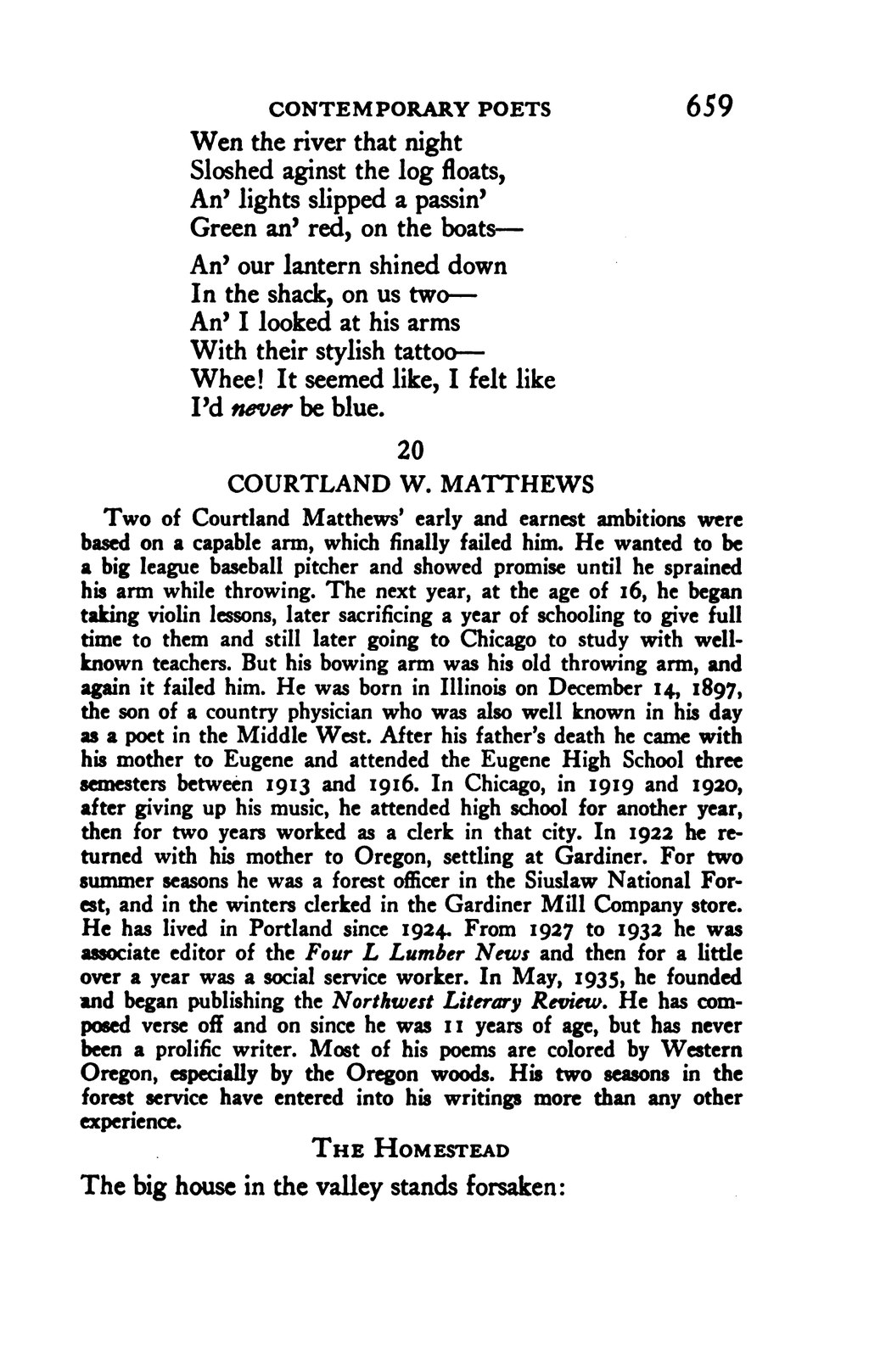Sloshed aginst the log floats,
An’ lights slipped a passin'
Green an’ red, on the boats—
In the shack, on us two—
An' I looked at his arms
With their stylish tattoo—
Whee! It seemed like, I felt like
I’d never be blue.
20
COURTLAND W. MATTHEWS
Two of Courtland Matthews' early and earnest ambitions were based on a capable arm, which finally failed him. He wanted to be a big league baseball pitcher and showed promise until he sprained his arm while throwing. The next year, at the age of 16, he began taking violin lessons, later sacrificing a year of schooling to give full time to them and still later going to Chicago to study with well-known teachers. But his bowing arm was his old throwing arm, and again it failed him. He was born in Illinois on December 14, 1897, the son of a country physician who was also well known in his day as a poet in the Middle West. After his father's death he came with his mother to Eugene and attended the Eugene High School three semesters between 1913 and 1916. In Chicago, in 1919 and 1920, after giving up his music, he attended high school for another year, then for two years worked as a clerk in that city. In 1922 he returned with his mother to Oregon, settling at Gardiner. For two summer seasons he was a forest officer in the Siuslaw National Forest, and in the winters clerked in the Gardiner Mill Company store. He has lived in Portland since 1924. From 1927 to 1932 he was associate editor of the Four L Lumber News and then for a little over a year was a social service worker. In May, 1935, he founded and began publishing the Northwest Literary Review. He has composed verse off and on since he was 11 years of age, but has never been a prolific writer. Most of his poems are colored by Western Oregon, especially by the Oregon woods. His two seasons in the forest service have entered into his writings more than any other experience.
The Homestead
The big house in the valley stands forsaken:
